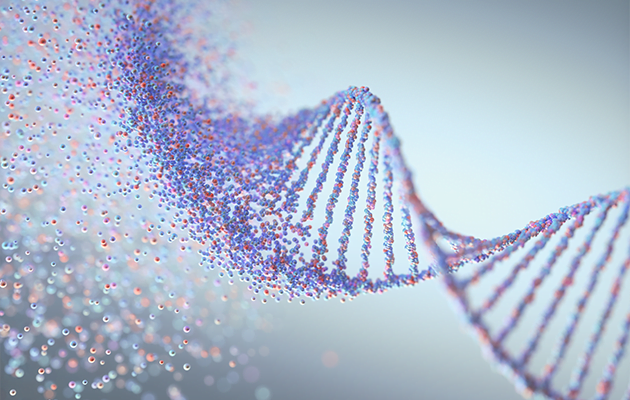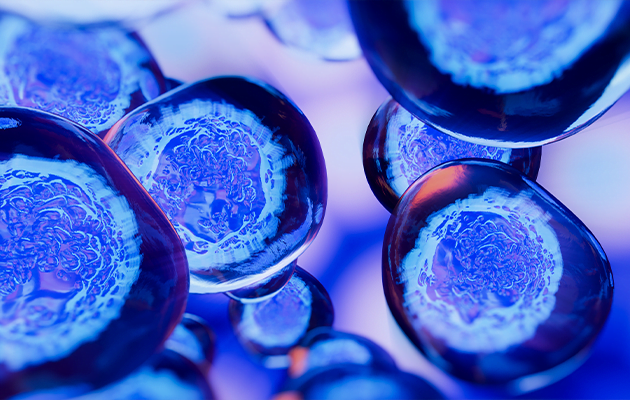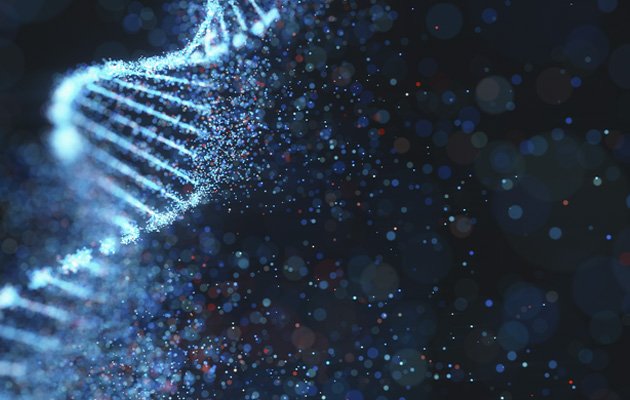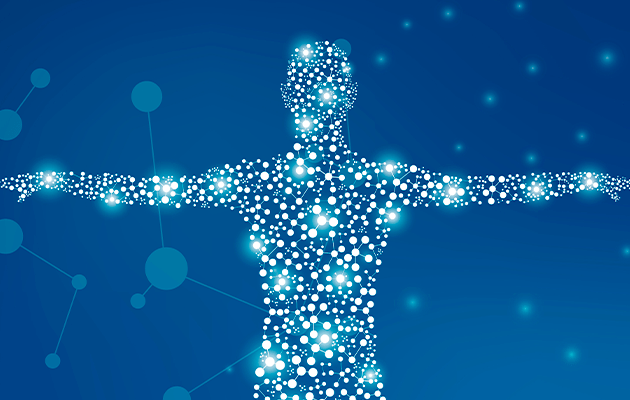Our scientific team is made up of health professionals from around the world who support the vision of helping millions of people learn about epigenetics with the goal of living a healthier life.

Doctor in physical activity and health
Dr. Milagros Arteaga Checa is a Doctor and Professor at the University of Jaén (Spain).
She is a consultant in nutrition and health collaborating in different companies aimed at intervention and health improvement from 2009 to the present, PhD in Physical Activity and Health, trained and specialized in postgraduate studies as an expert in Immunonutrition, university expert in Clinical Nutrition, specialist in Cellular Nutrition and specialist in Orthomolecular Nutrition and Supplementation and Sports Nutrition.
She teaches as a guest lecturer in the Official Master’s Degree in Human Nutrition at the University of Granada, in the Master’s Degree in Physical Rehabilitation and Injury Prevention at the University of Jaén, in the Official Master’s Degree in Social Gerontology at the University of Jaén and as a professor of the subject Active Aging.

Doctor specialized in organic medicine and nutrition
Dr. Martin Azanza Pellerino is an international referent Member of the International Society for Research, Health, Business Development and Technologies, is a Member of the World Association for Health Excellence, General Director of CNS Coaching, Nutrition and Health, and is also the representative in Spain of the Dr. Elsy Jimenez Foundation for the prevention and fight against cancer.

General director of Longevity Institute
National Award for Women and Professional Excellence from the National Women’s Chamber, the United Nations Gender Equity Organization and the Mexico Business Hall of Fame.
Dr. Eliselma is the head of the Longevity Institute and is a member of the National Board of the Alliance for Health in Mexico Foundation (FUNDAMEX), delegate of the Hispano-American Orthomolecular and Anti-Aging Association (AHANOA), delegate of the health area in the Association of Women for Mexico and the World A.C., and member of The American Academy of Anti-Aging Medicine (A4M).

Doctor in medicine and surgery
Rafael Serrano is a Doctor of Medicine and Surgery, his studies have always been directed to the integral health of patients, for which he has completed various postgraduate and refresher courses in Functional Medicine, Ozone Therapy, Cell Therapy, Depurative Nutrition, Medical Homeopathy, Neural Therapy, Antiaging Medicine and Orthomolecular Medicine in different countries such as Argentina, Italy, Colombia, Brazil, Peru and the United States.

Doctor in medicine
Dr. Matos holds a Doctor of Medicine degree from the Universidad Iberoamericana in Santo Domingo, Dominican Republic.
He specializes in Cardiovascular Anesthesia and Critical Care Medicine, also holds a Master’s degree in Molecular Biology from Las Americas Health Science Center and is currently a PhD candidate in Health Sciences at Atlantis University.

Anti-aging and aesthetic medicine
Dr. Andrea Rodriguez Franco is a reference in Antiage Medicine and Aesthetic Medicine in Argentina and Spanish speaking countries.
She graduated from the University of Buenos Aires, with specialization in Pediatrics, Aesthetic Medicine and Antiage Medicine, as well as in Ozone Therapy.
She has a Master’s Degree in Aesthetic and Anti-Aging Medicine from the Complutense University of Madrid. She is also the Director of the ARF Biological Medicine Clinic, a center created to accompany patients in aesthetic care, nutrition, laser surgery, sports and genomics.

Doctor in medicine
Dr. Yonatan Ivan Castañeda is a functional physician specialized in anti-aging medicine, antioxidant serums, detoxifying and regenerative cell therapy, and is the General Director of Youth Clinical Center.

Nutritionist
Anabela Martins is a nutritionist specialized in pharmacology and sports nutrition, in direction and management of health services.
She is also an expert in active cellular nutrition, nutrigenomics, naturopathy and different natural therapies such as phytotherapy, oligotherapy and Bach flowers.

Health coach specialized in nutrigenomics
Michelle Peiret is a specialist in Nutrigenomics training in the Detox area certified by the Spanish Institute of Nutrigenomics and accredited at The Harvard Medical School in Nutrition and Metabolic Syndrome and specialist in Obesity of the ICNS Spain.
As a health coach, her mission is to help people improve their quality of life through her detoxification, cellular regeneration, blood alkalinization and exercise plans.

Naturopath
Dr. Roberto Diaz Celaya has performed an average of 35,000 cardiovascular studies using non-invasive technologies, he is a reference in the Wellness sector in Mexico and the United States.
D. in Naturopathy from the University of Chicago in 2010 and President and Co-Founder of Natural Life Technology, a leading company in Nutraceuticals.

Life and social-emotional development coach
Alejandra Alvarez, diabetic since she was 14 years old, began to write in her diaries how difficult it was to live her reality, which pushed her to make a change in her life.
She has given hundreds of talks in Mexico and the United States, she is currently a Life Coach and Socio-Emotional Development Coach, besides being a Holistic Nutrition Coach.

Internist geriatrician
Dr. Donato Méndez Segura has dedicated his entire life to medicine, during his career he has been trained and specialized in the following disciplines: Medical Surgeon, specialist in Internal Medicine, diploma in Geriatrics and Anti-Aging, specialist in Revitalization, Obesity, Physical Improvement and Successful Aging, diploma in Panic Healing and diploma in Interdimensional DNA Reprogramming.

Esteban Peiró Monzó | Dr. Alexandre Olmos Torres
May 23, 2024

Esteban Peiró Monzó | Maria José Albala Cano | Santiago González Vizuete
25 April 2024

Esteban Peiró Monzó | Cristina Álvarez
February 22, 2024

Esteban Peiró Monzó | Anabella Martins
January 25, 2024

Esteban Peiró Monzó | Dr. Omidres Pérez
04 December 2024

Esteban Peiró Monzó | Dr. Milagros Arteaga Checa
November 13, 2024

Esteban Peiró Monzó | Dr. Martin Sebastián Azanza
September 14, 2024

Esteban Peiró Monzó | Dr. Martin Sebastián Azanza
July 27, 2024
Genes make up only a small part of the genome, 1 to 2%, the rest being composed of intergenic regions that do not code for proteins.
Each of the more than 200 cell types in the body interprets this identical information very differently to perform the functions necessary to keep us alive.
This shows that we must look beyond the DNA sequence itself to understand how an organism and its cells function.
Translated with DeepL.com (free version)


Epigenetics explains how experiences can alter gene activity without interfering with the DNA sequence.
It is also responsible for the inheritance of various traits and the ability to transmit these traits over several generations. Many people call this cellular memory.
Previously, it was believed that epigenetic transformations took place only at the initial stage of an organism’s formation and were not observed in adulthood. Everything changed at the end of the 20th century, when there was a revolution in the genetic view; it became very clear that these changes occur constantly and affect our lives.
One of the most studied mechanisms of epigenetic regulation of gene activity is the process of methylation, which involves the addition of a methyl group to cytosolic DNA bases.
Methylation is an important process for our genes at different times in our lives, and conditions that interfere with methylation can cause us harm in the future. For example, during pregnancy, it is very important to consume folic acid along with vitamin B12 and the amino acid methionine, which serves as a donor-provider of methyl groups necessary for the normal flow of methylation, otherwise the risk of pathologies in the baby increases.
Another good example: regular consumption of green tea reduces the risk of cancer, as it contains a substance called epigallocatechin gallate (EGCG), which can activate genes that inhibit tumor growth by demethylating their DNA sites.


Our genetic information is encoded in the bases of the DNA sequence. Inside cells, DNA is wrapped around proteins called histones. DNA free of histones allows its genes to be turned on. In turn, genes coiled around histones are turned off.
One of the ways to inactivate a given gene is to attach a small methyl group to it. This involves the enzyme DNMT binding to the DNA and transferring the methyl group to the base of the cytosine, which is wound onto the DNA strand (this usually occurs in areas where the guanine follows the cytosine).
DNA methylation is a process in which, under certain environmental conditions, a certain part of the genes is turned on or off without changing the DNA structure. The gene remains the same, but its expression, i.e. its activity, changes.
To better appreciate Epixlife’s objective, it is first necessary to understand what we mean by gene expression. Genes encode the information needed to produce proteins, which are the molecules that perform functions in the cell.
How much protein a given gene ultimately produces, or whether it is allowed to produce protein at all, is determined by its gene expression or activity.
If the cell is expending energy to produce RNA from DNA, it is probably being used for something. Proteins that bind to DNA influence the expression of a gene, and chemical modifications of DNA can also prevent or enhance gene expression.


The functional complexity of hair follicles makes it a perfect source for providing comprehensive results based on their bioinformation.
The hair erector muscle or piloerector constantly senses not only changes in temperature and atmospheric pressure, but also the vibrations and frequencies of the ecosystem and the surrounding area.
It reacts instantaneously to changes and threats in the environment, causing the hair to “bristle” and relax when the environment is calm.
It expands and contracts when the system overheats or cools, therefore, the cells contained in the hair bulb store bioinformation as it is connected to the arrector pili muscle.